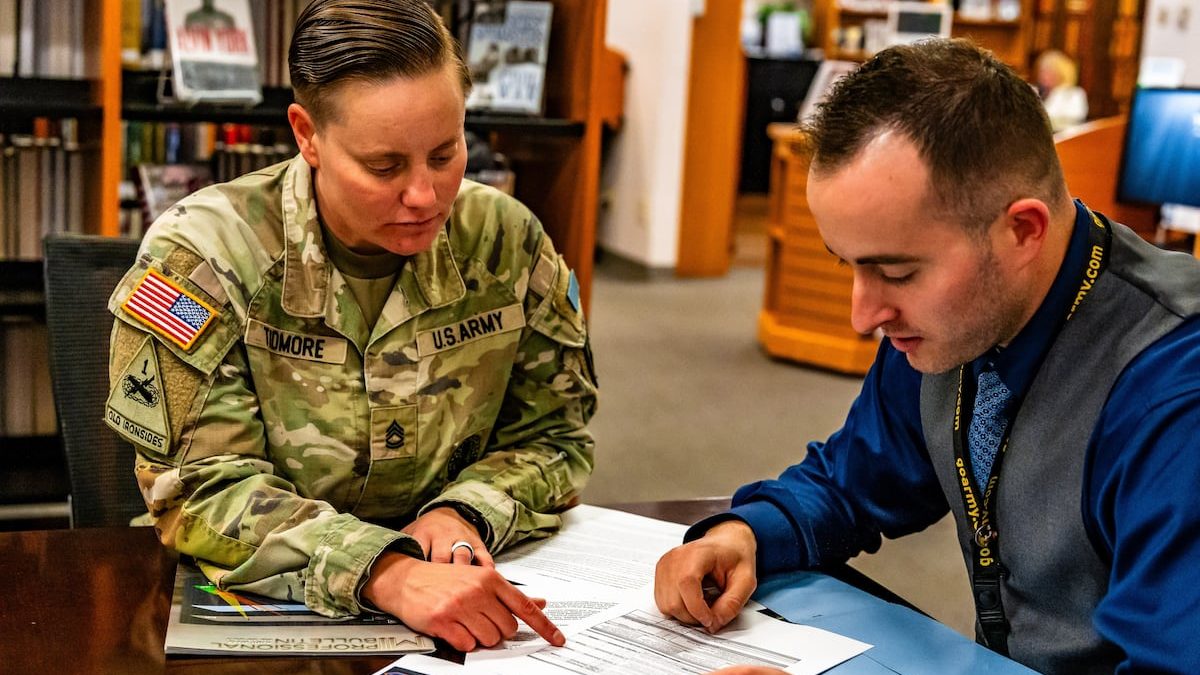The Army wants soldiers of all ranks to do more military reading and writing, as its leaders hope to capture feedback from the force on how to fight the next war.
Over the past year, the service launched the Harding Project, which has seen its first cohort of graduates join their respective military journals or publications as temporary editors.
The service sent 18,000 print copies of “Military Review,” with a series of “how-to” articles on professional military writing out to 4,333 units. They’ve also published the same articles digitally, sharing them across multiple Army social media channels and websites.
RELATED
One cumbersome problem for soldiers who wanted to dig into their branch journals, such as “Infantry” or “Armor” magazines, was their format. The legacy approaches to publication meant users would have to find the webpage and download a printable file to read the material.
In early October, the service launched its “Line of Departure” website, which contains Army military journals in online-specific and mobile-friendly formats. Now, users can share individual articles from their smartphone, just as they can with news articles or social media posts.
Part of fostering a more educated and inquisitive force is making materials more accessible, Lt. Col. Zachary Griffiths, special assistant to the Army’s chief of staff, told Army Times.
“It’s optimized for mobile and desktop viewing,” Griffiths said. The lieutenant colonel hopes the content might compete with what soldiers are scrolling through on their smartphones while waiting in line at the commissary or during other spare time.
“The number one thing we’re trying to do is make content accessible,” Griffiths said.
Sgt. 1st Class Leyton Summerlin, assistant to the Sergeant Major of the Army, told Army Times that “the goal is to provide content in three clicks or less.”
The website launched with more than 200 articles from 11 military journals, Griffiths said. Future work will add digitized archives from past journal issues.
Much of the writing and academic work within the branch has suffered in recent decades due to the Army’s commitments to ongoing overseas deployments.
For instance, the last time “Armor” magazine had an editor serving in uniform was in 2006, Army Times previously reported.
As the Harding Project fellowship program enters its second year, participants will get full exposure to journalistic practices as they train to run their branch’s journal.
Those selected — active duty captains, master sergeants or chief warrant officers 4 — will spend a year at the University of Kansas earning a graduate degree in journalism before being assigned a two-year tour at their branch journal.
The Army wants fellows to not only bring subject matter expertise from their field to the job but also have the editing and writing skills necessary to better translate the jargon-heavy material to new soldiers, Griffiths said.
Fellows will also serve as writing and reading ambassadors, traveling to units to explain the writing opportunities and encourage more professional military reading.
Todd South has written about crime, courts, government and the military for multiple publications since 2004 and was named a 2014 Pulitzer finalist for a co-written project on witness intimidation. Todd is a Marine veteran of the Iraq War.
Read the full article here


